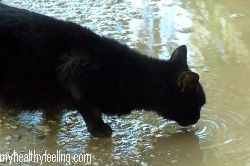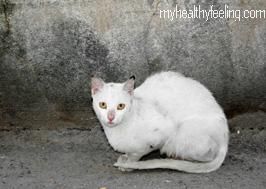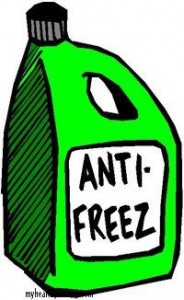Antifreeze poisoning is quite common, affecting about 10,000 animals and thousands of children in the U.S. annually. This occurs when animals and humans ingest the poisonous substance, ethylene glycol, found in antifreeze. Cats and dogs are the usual victims of antifreeze poisoning. But humans, especially children, also suffer from it either due to ignorance or curiosity.
What is Antifreeze Poisoning?
The ethylene glycol in the engine coolant is sweet tasting. This makes the antifreeze palatable and even appealing to animals and humans alike. When pets find antifreeze in open containers or puddles on the ground, they may drink or lick it due to thirst or because they like the taste. Animals are especially susceptible to ethylene glycol. For instance, about one to two teaspoons is enough to poison a cat, while 3 tablespoons can be fatal for dogs. Small children are also very sensitive to antifreeze. That is why if you think your child or pet had a taste of this substance, you should immediately seek medical help.
Mechanism of Poisoning
The ethylene glycol is metabolized in the liver, which results to toxic compounds that impede the normal operation of the central nervous system. Some symptoms of ethylene glycol poisoning are drunken appearance, vomiting, intense thirst, frequent urination, giddiness, confusion, lethargy, tenderness in the abdomen, convulsions and, when not treated on time, eventual death.
Effects
Even when the poisoning was discovered early on and treatment was done on time, it could still result to both instantaneous and lasting harm to your pet and child’s health. Severe damage to kidneys and body extremities are common to antifreeze poisoning. In some instances, pets that were treated successfully still lost their limbs or ears due to the extensive damage on these parts. Moreover, brain damage has also been recorded due to ethylene glycol poisoning.
Antifreeze Poisoning Treatment
As soon as you’ve discovered that antifreeze had been ingested, you should commence getting the substance out of the body. You can induce vomiting. Giving the patient medication that will prevent the ethylene glycol from being metabolized in the liver can also be done. Regular ethanol is one of the best treatments for this type of poisoning. Getting rid of the poison from the blood through hemodialysis may also be recommended.
Prevention
Because of the gravity of the effects of antifreeze poisoning, it is better to prevent it from happening in the first place. When working with engine coolants, everyone should be very careful to avoid spills and leaving even trace residue on the floor. Should there be any spills, these should be immediately washed or wiped. When changing coolant, it must be stored in a container that can be sealed before being disposed of properly. It is also recommended that children and pets not be allowed in areas where antifreeze is kept or worked with.
You can, likewise, lessen the danger of ingesting engine coolants by using a product with bittering agent. This agent, denatoninol benzoate, renders the antifreeze unpalatable. It does not harm engines, is biodegradable and safe. You can also opt to use the less toxic propylene glycol to prevent antifreeze poisoning.




Home remedies for antifreeze poisoning of cats. My cat is breathing heavily and drooling. Any ideas what may be wrong other than poisoning.